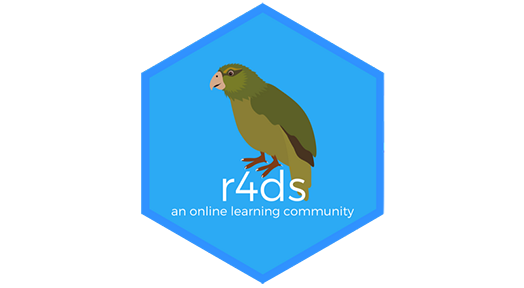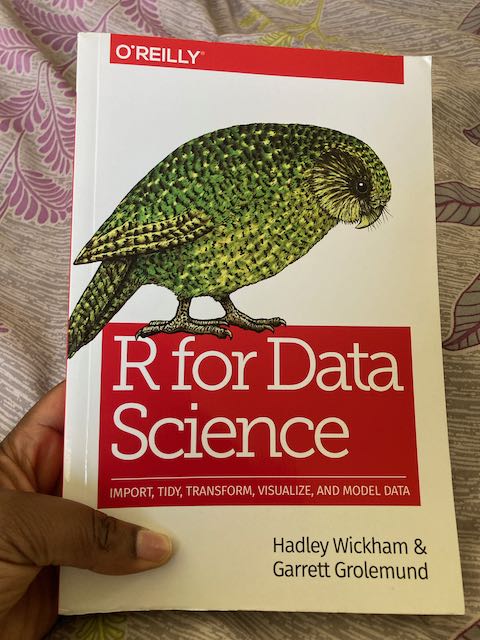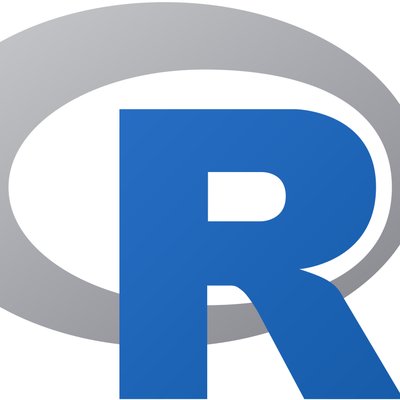
So, what is the R4DS Online Learning Community?
The R for Data Science (R4DS) Online Learning Community is a Slack community of R learners at all skill levels working together to improve their R programming and data science skills. With its beginnings as a book club for the eponymous work, “R for Data Science” – the holy grail of how to do data science with R – by Hadley Wickham and Garret Grolemund, R4DS consists of learners who wish to develop their skills in R, and dozens of volunteer mentors that help build a positive learning community for these R users, expanding their own R programming and debugging skills along the way. Through their plethora of concurrent book clubs, which have expanded to topics beyond R to include other programming languages and data science topics, R4DS helps develop resources, such as github repos, online companion notes for various data science books, and youtube videos, for themselves and others in the #rstats community.

What are the benefits of joining R4DS?
Through my participation in the R for Data Science (R4DS) Online Learning Community, I have become a better student than I would have been otherwise. I was able to learn new and more advanced topics related to R and data science well before my classmates that also came from non-technical undergraduate backgrounds. Some of these topics included the tidyverse, how to read and understand package vignettes, how to make slide presentations with Rmarkdown, and how to use and collaborate with others on GitHub. R4DS has also helped connect me with opportunities that I may not have otherwise found out about, such as scholarship opportunities, mentorship programs, and other R communities that would be useful to me throughout my studies.
My history with R4DS and the R Programming Language
If you’re familiar with my blog, you may know that I am currently a second-year master’s-level graduate student studying statistics at California State University East Bay, and a non-traditional student, having earned my bachelor’s degree in May 2011. Coming from an undergraduate background in economics and business administration, I had absolutely no knowledge of, or experience with, the R programming language prior to pursuing my Master’s degree. I joined the R4DS Slack Workspace back in July 2021, a month prior to the commencement of the first semester of my degree program, in hopes of giving myself a headstart on learning this new foreign language, R. After lurking in Slack for a couple of months and starting to learn a bit of R in my statistical methods course at school, I finally joined an R4DS book club.
My first R4DS book club
The club I chose to join first was cohort one of the R4DS ggplot2 book club. For those unfamiliar with the ggplot2 R package, it is “ a system for declaratively creating graphics, based on The Grammar of Graphics”. With my prior experience and strong interest in fashion design, the ggplot2 book club made the most sense for me to join as it would combine my love of all things aesthetically pleasing, as well as provide me with a solid foundational knowledge in data visualization. My book club consisted of both working professionals and students from several time zones, brought together by curiosity and a passion for lifelong learning. We met every Monday over zoom for several months, as each week’s volunteer presented a chapter of “ggplot2: elegant graphics for data analysis”, collaborating through GitHub to create a website to house our notes.
Why should you join R4DS, and how?
Okay, I know, you want concrete examples of how R4DS made me a better student. It’s probably best if I provide them as bullets rather than a narrative, so here goes:
During the first semester of my MS program, I was able to create an Rmarkdown slide presentation for my Probability and Statistics Theory class group project. Since my project is accessible online through GitHub, I was able to provide the link to an interviewer during the first round interview with Intel for my 2022 graduate data analytics internship position.
Collaborating through GitHub, my colleagues and I used Rmarkdown to make a slide presentation and write a paper for the final project of our Linear and Logistic Regression. My classmate Ken and I would later present that project as a use case for ggplot2 for my R4DS book club.
After learning about it on the R4DS Slack, I applied for and was awarded one of only fifty diversity scholarships to attend rstudio::conf(2022). As an rstudio conf diversity scholar, I attended a special workshop just for us scholars to learn how to use Quarto, which I used to make the blog you are reading now as well as my final presentation for my Applied Research in Statistics class.
While results may vary, you too can reap similar educational benefits by joining R4DS. Along with what I’ve stated above, R4DS has also provided me with the confidence to do public speaking, network with professionals, and do presentations on topics that I am still learning. R4DS has also helped me become a better leader, as I am currently co-facilitating a book club reading “Data Visualization with R” by Robert Kabacoff. One day, I hope to become a R4DS mentor as well because I truly believe that teaching others is one of the most valuable ways to learn a topic yourself.

If you’re interested in learning more about the R for Data Science Online Learning Community, you can find R4DS on GitHub or YouTube @r4ds, on Twitter @R4DSCommunity, or join the R4DS Slack by visiting r4ds.io/join. I hope to see you there!
More Resources
The #rstats community extends well beyond R4DS. Here are some other communities that may also be of interest to readers:
R-Ladies: R-Ladies is a worldwide organization whose mission is to promote gender diversity in the R community. They have a very active Slack Workspace, as well over 200 active local R-Ladies meetup groups in 29 countries across the globe. You can find recordings of previous R-ladies events and webinars on the R-Ladies YouTube channel.
MiR: Minorities in R: MiR is a Slack-based community started in March 2020 to support the professional development and well-being of historically underrepresented minorities that use R.
R User Groups: There are a worldwide network of R User Groups that have been sponsored by the R Consortium. There are over 98 R User Meetup Groups in 40 countries. NOTE: Not all groups are active.
